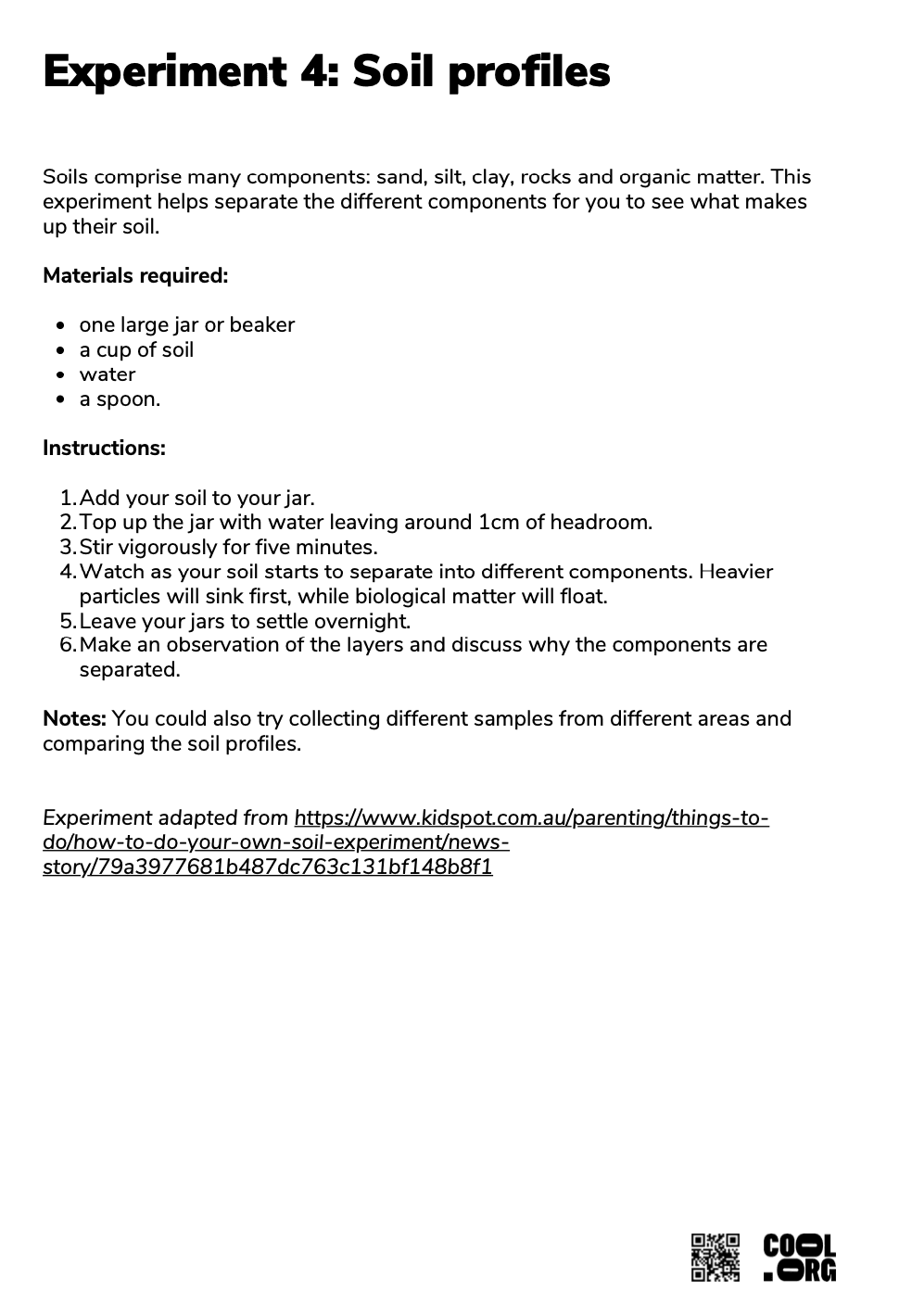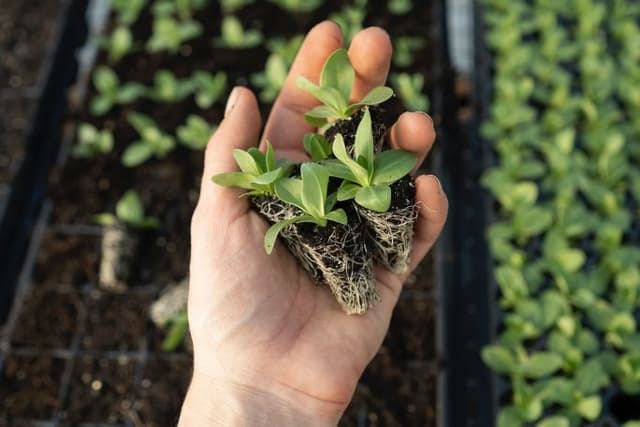
Testing Soil Samples
Lesson3 of 5 in this unit
PrimaryYear 3ScienceBiologyEarth and SpaceInquiry SkillsEnvironmentalBiodiversityLand ManagementSustainabilitySocialOutdoor Learning
Summary
Lesson Guides and Printables
Lesson Plan
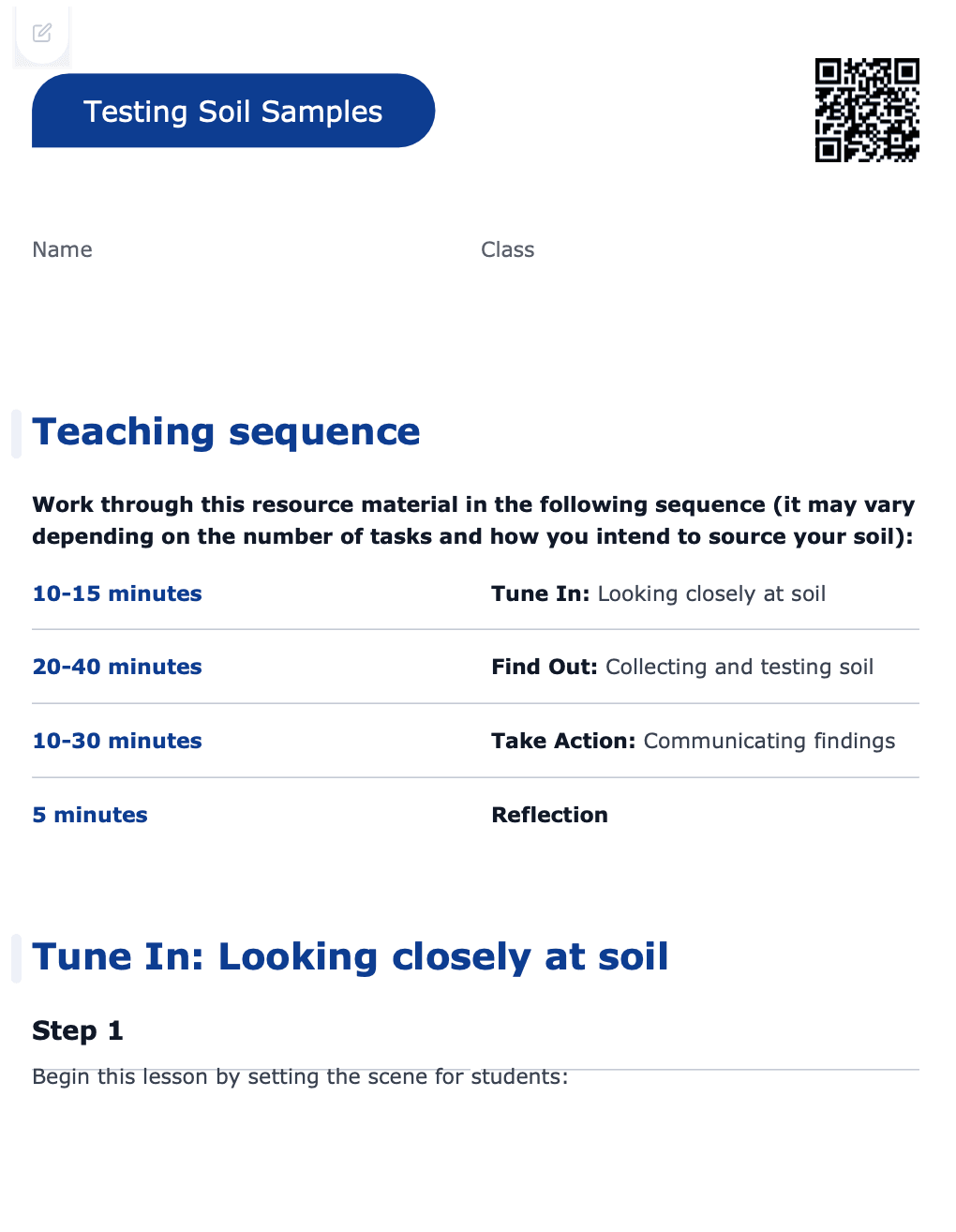
Teacher Content Info
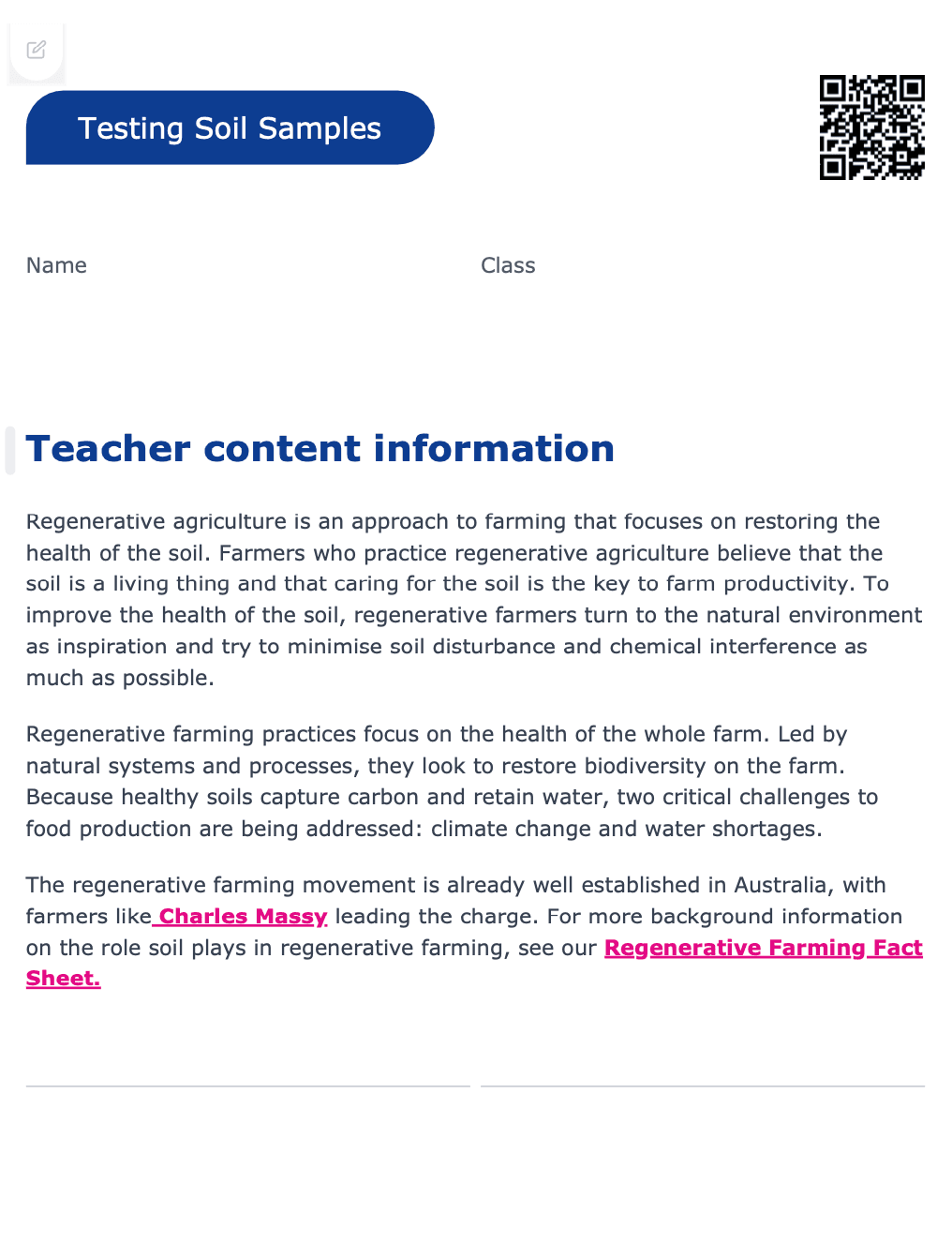
Communication Piece Rubric
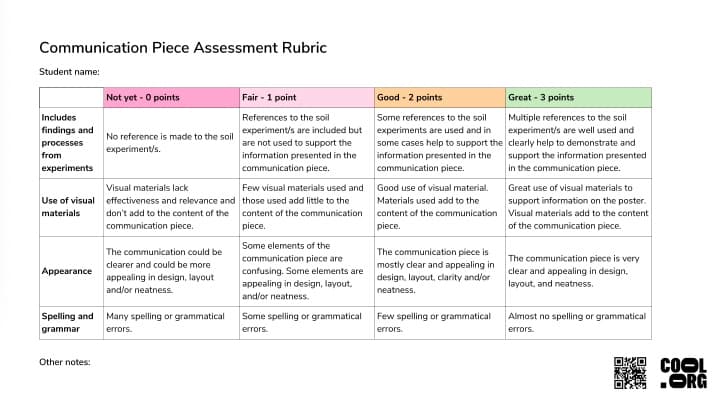
Experiment 1: Testing the air in the soil
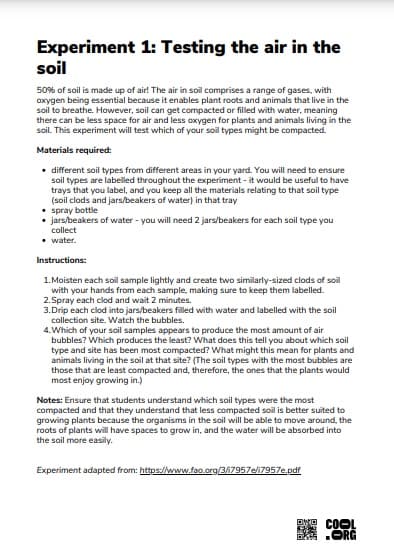
Experiment 2: Testing the amount of water in the soil
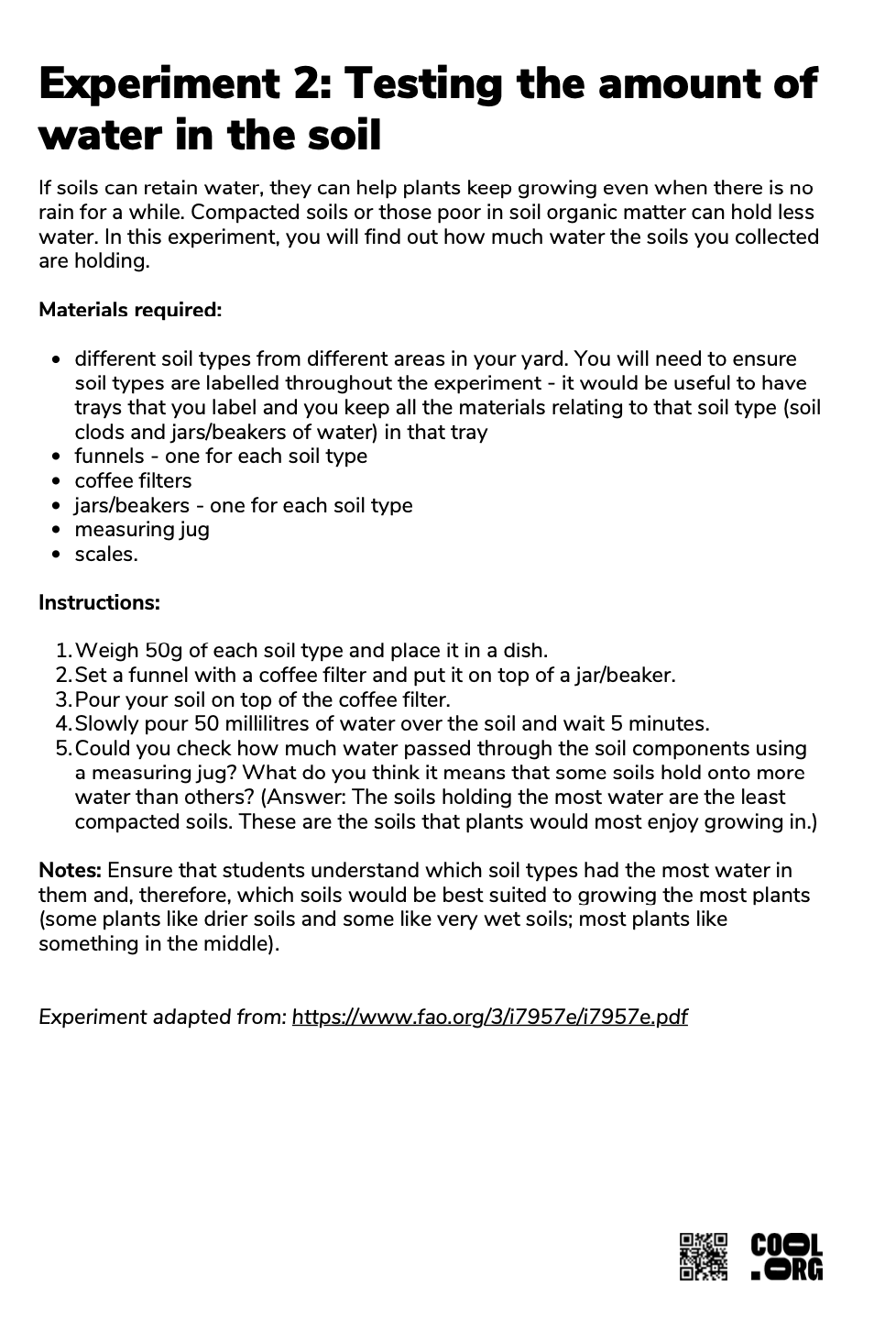
Experiment 3: Testing the fungi in the soil
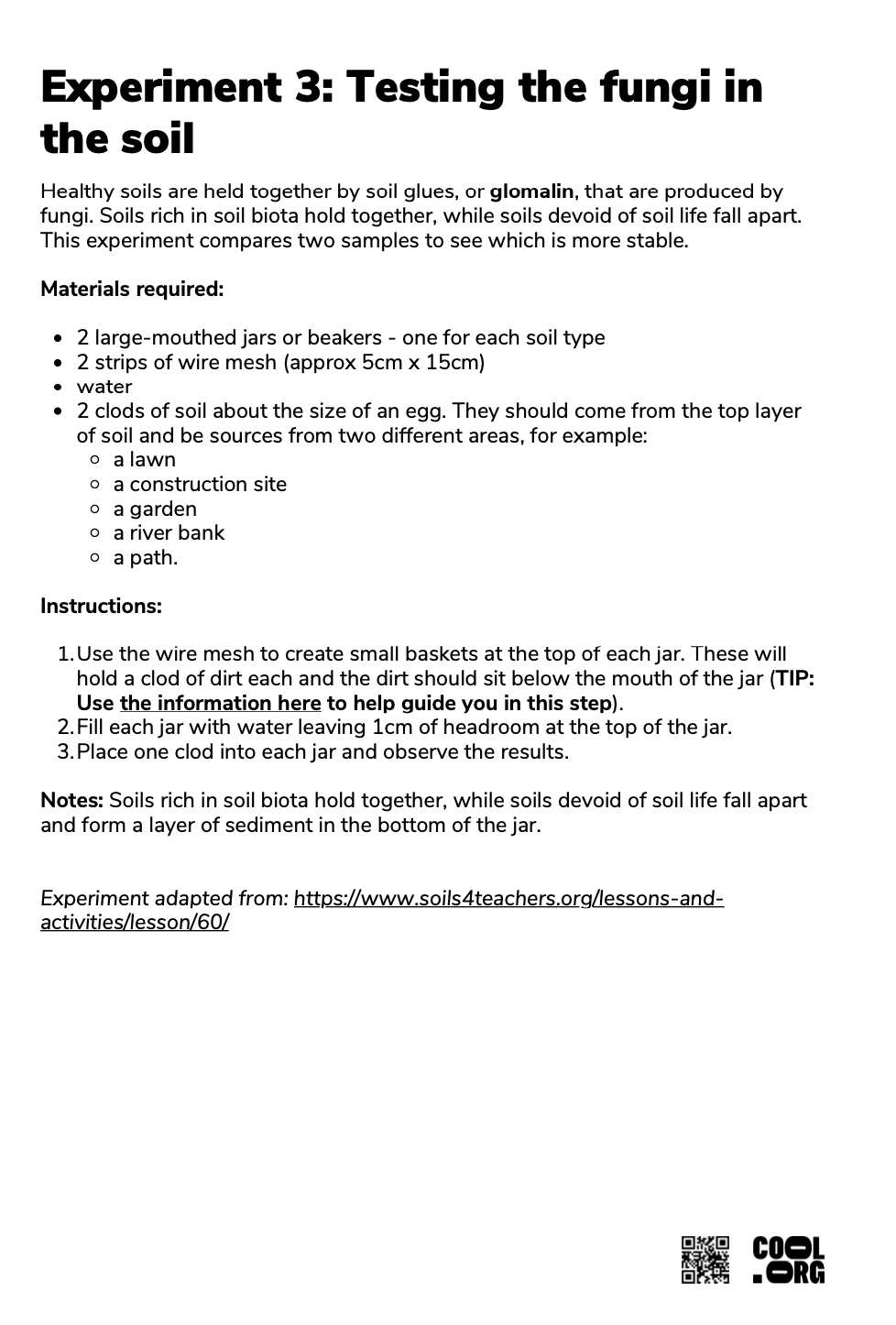
Experiment 4: Soil profiles
